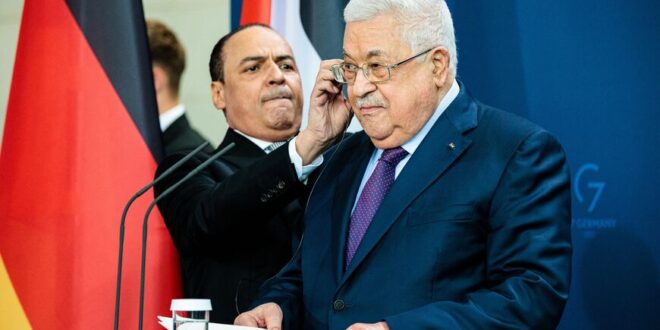Factions of the embattled party are maneuvering for greater influence even while longtime president Mahmoud Abbas remains in power.
The recent public statement by senior Fatah official Mahmoud Alloul about the decline of his movement might be surprising but it reflects the deterioration that has been going on for some time.
Ever since the pro-Fatah lists were trounced by the pro-Hamas list in the 2006 parliamentary elections, Fatah’s popularity has been declining, according to polling and actual votes in municipal and university student council elections.
However, the mainstream Fatah movement is still the only game in town for the time being, especially with no prospects of a political movement on the Palestinian-Israeli track before the 2024 US elections, and with the presence of the current Israeli far right coalition increasing the strain on the Palestinians.
Fatah’s main rival today is the Fatah reformist movement, supported and (importantly) funded by ex-Fatah security chief living in the UAE Mohammad Dahlan, which has been making political strides throughout Jerusalem, the rest of the West Bank, and Gaza.
The accepted scenario was that Dahlan and his team would only make a move once the current head of Fatah, 86-year-old Mahmoud Abbas, is no longer in charge. But behind-the-scenes lobbying is taking place to allow Dahlan’s people, especially his right-hand man Samir Mashrawi, to work more publicly in Gaza. Sources tell Al-Monitor that Dahlan’s team is coordinating with all factions of Fatah as well as reaching out to Hamas, which despite their control of Gaza is desperately in need of help.
An alliance is being formed between Dahlan’s team and the renegade Nasser Kidwai’s group, in coordination with jailed Palestinian Fatah leader Marwan Barghouti, Al-Monitor has learned. Dahlan, who has stated that he has no plans to run for any political position, wants to push for Marwan as the next president of the Palestinian Authority. Barghouti has been in jail since 2006, convicted and imprisoned for murder by an Israeli court, but successive polls including one last year by The Palestinian Center for Policy and Survey Research show him as the most popular Palestinian figure today.
In a match-up against Hamas’ Ismail Haniyeh, Barghouti would win with 59%-37%. Abbas on the other hand would lose according to the same 38%-54% to Haniyeh.
Fatah is a non-ideological liberation movement of various political persuasions. Its members today largely work in various security and government posts and an entire class of paid persons have emerged in recent years. This governing class is corrupt and is interested in Abbas staying in power as long as possible so as to reap the benefits of his legitimacy. It is governed by a 20-member central committee that is elected from a 1,400-member congress. The seventh Fatah congress took place in Bethlehem in 2016. The next one was supposed to be held within two to three years, but there are no signs of it any time soon.
At the Bir Zeit University student council elections, Fatah recently got only 20 seats compared to Hamas’s 25. Left-wing Palestinians were able to get six seats.
Palestinians are frustrated with the lack of political progress and see no tangible strategy for liberation or for a better governing policy. The cancellation of presidential and legislative elections in April 2022 is still being felt today, as Palestinians worry that the continuation of power in one person without elections will move Palestine more and more towards authoritarianism.
 Eurasia Press & News
Eurasia Press & News



